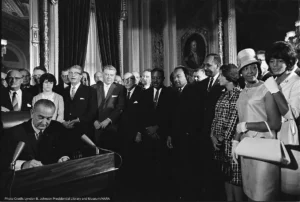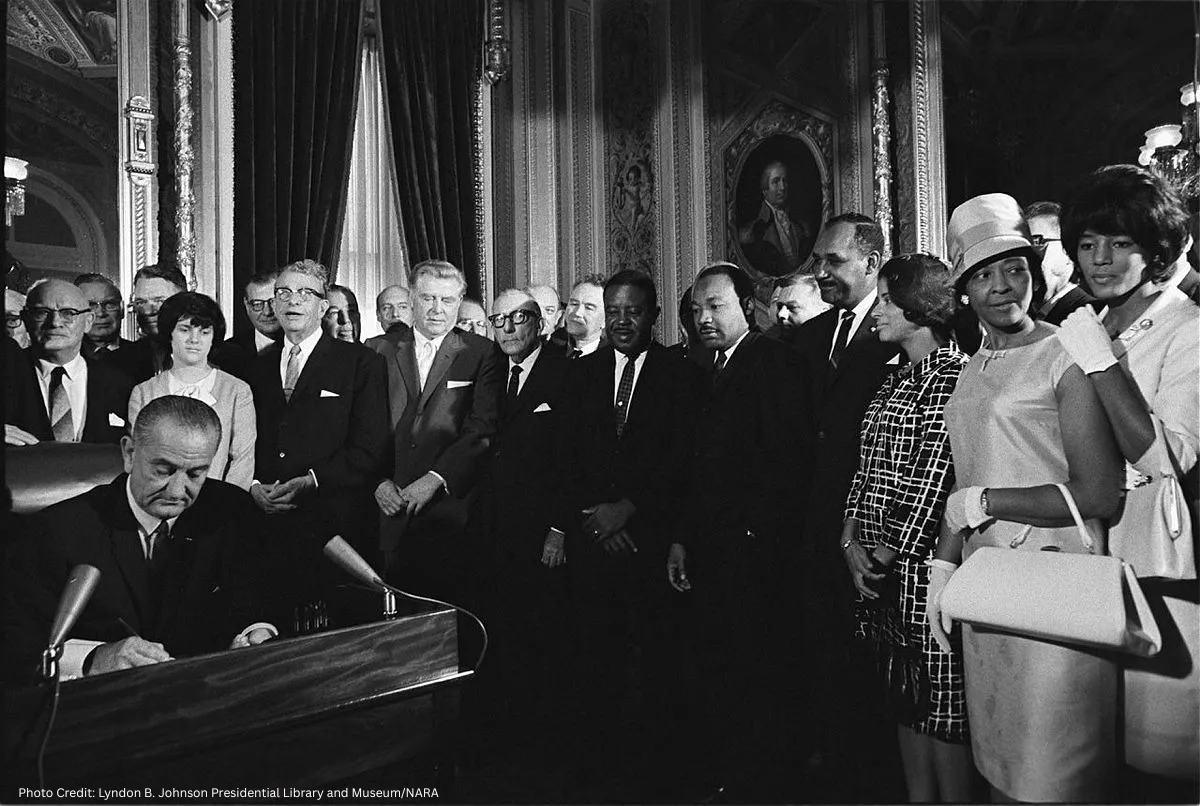
National Civil Rights Museum Op-Ed
Dr. Russ Wigginton, President
On August 6, 1965, President Lyndon B. Johnson signed the Voting Rights Act (VRA), one of the most consequential victories in American history. Nearly a century after the 15th Amendment promised Black men the right to vote, the VRA responded to relentless efforts to deny African Americans full participation in democracy.
Its impact was immediate. Fueled by grassroots campaigns in Mississippi and Selma, Alabama—where activists risked beatings, arrests, and even death—the law reshaped the political landscape. In the critical 1966 midterm elections, just one year after the Act’s passage, Black voter registration in Mississippi soared from less than 5% in 1964 to over 60%. For the first time since Reconstruction, the South saw a major wave of Black voter participation.
This progress was hard-won. Activists like Viola Liuzzo and Jonathan Daniels were murdered for helping to register voters in Alabama. Vernon F. Dahmer, who championed the phrase “If you don’t vote, you don’t count,” was killed in 1966 when Klansmen firebombed his home before he could cast his first ballot that November. Their sacrifices fueled a historic movement that secured transformative political change.
Sixty years later, the promise of the VRA remains under threat. Restrictive voter ID laws, mass voter roll purges, polling place closures, and extreme gerrymandering continue to undermine fair access to the ballot. In 2013, the Supreme Court’s Shelby County v. Holder decision struck down federal oversight of states with histories of discrimination, opening the door to a wave of laws that disproportionately impact Black, Latino, elderly, and young voters.
In 2023, the Eighth Circuit Court delivered another blow, ruling that only the U.S. Attorney General—not private citizens or civil rights groups—could bring lawsuits under Section 2 of the VRA. This ruling silences the very communities the Act was designed to protect and weakens the ability to challenge discrimination.
Yet history shows that when citizens mobilize, change is possible. In 2020, record voter turnout—particularly among young people and communities of color—helped reshape leadership and usher in policies focused on pandemic relief, infrastructure, and expanded child tax credits. In Georgia, grassroots organizing flipped the state’s political balance and elected its first Black U.S. Senator. Michigan voters ended gerrymandering and expanded early voting through ballot initiatives.
This is not about political parties; it’s about people power. The lessons of the 1966 midterms remind us that transformative change happens when historically silenced communities make their voices heard at the ballot box.
Two federal proposals are essential to continuing that transformation: the John R. Lewis Voting Rights Advancement Act, which would reinstate federal oversight of jurisdictions with histories of voting discrimination, and the Freedom to Vote Act, which would establish nationwide standards for ballot access and fair redistricting. Passing both is critical to fulfilling the original promise of the VRA.
Here’s how we can honor that promise:
- Register and Stay Registered – Check your status regularly at nass.org/Can-I-Vote, as states aggressively purge rolls.
- Vote in Every Election – Local and midterms shape schools, healthcare, and justice as much as presidential contests.
- Educate and Empower – Encourage young people to register early and learn how to vote by mail or in person.
- Support Pro-Voting Policies – Demand lawmakers pass federal protections for fair elections.
- Volunteer for Civic Engagement – Join voter registration drives or serve as a poll worker to ensure access for all.
- Hold Officials Accountable – Replace leaders who oppose voting protections.
As we mark 60 years of the Voting Rights Act, democracy demands the same vigilance and courage shown in 1965 and 1966. We owe it to those who bled for the ballot—and to future generations yet to cast theirs.
Let our turnout be our tribute, our participation our protest, and our votes the victory.
